Critical thinking development Worksheets for Ages 4-6
11 filtered results
-
From - To
Unlock your child's potential with our "Critical Thinking Development Worksheets for Ages 4-6"! These engaging, expertly designed resources are perfect for nurturing early cognitive skills. Through fun puzzles, logic games, and problem-solving activities, kids will build a strong foundation in analytical thinking. Each worksheet is crafted to stimulate curiosity, foster creativity, and improve critical thinking, all while keeping young learners entertained. Perfect for home practice or classroom use, our worksheets ensure that foundational skills are developed in an interactive and enjoyable way. Start your child's journey to becoming a confident, independent thinker today!
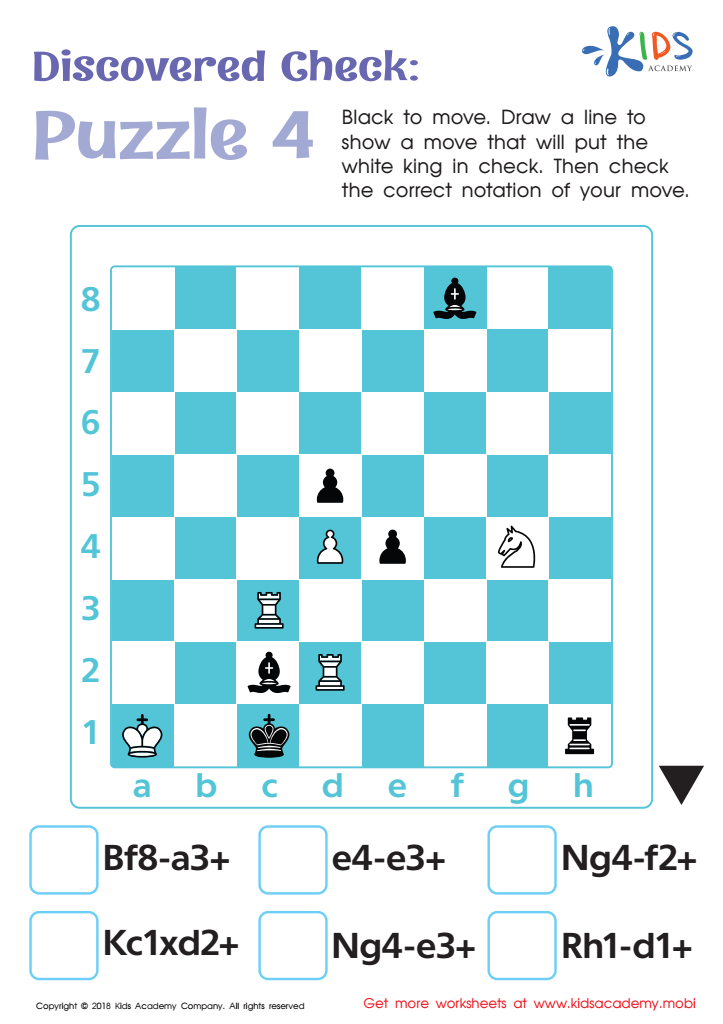

Discovered Check: Puzzle 4 Worksheet
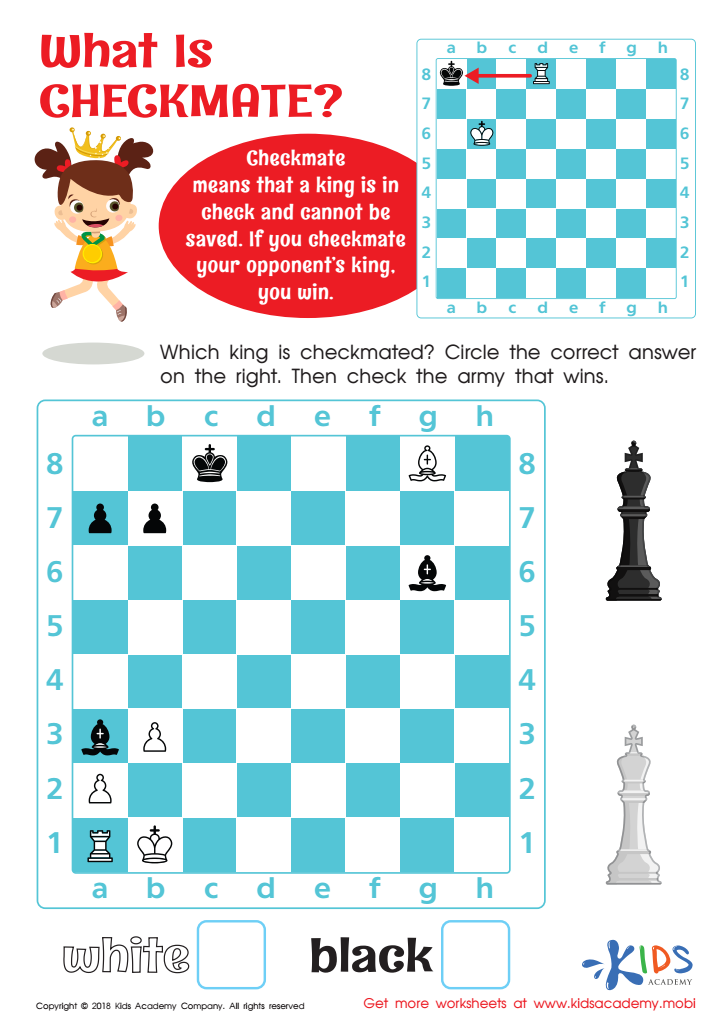

What is Checkmate? Worksheet
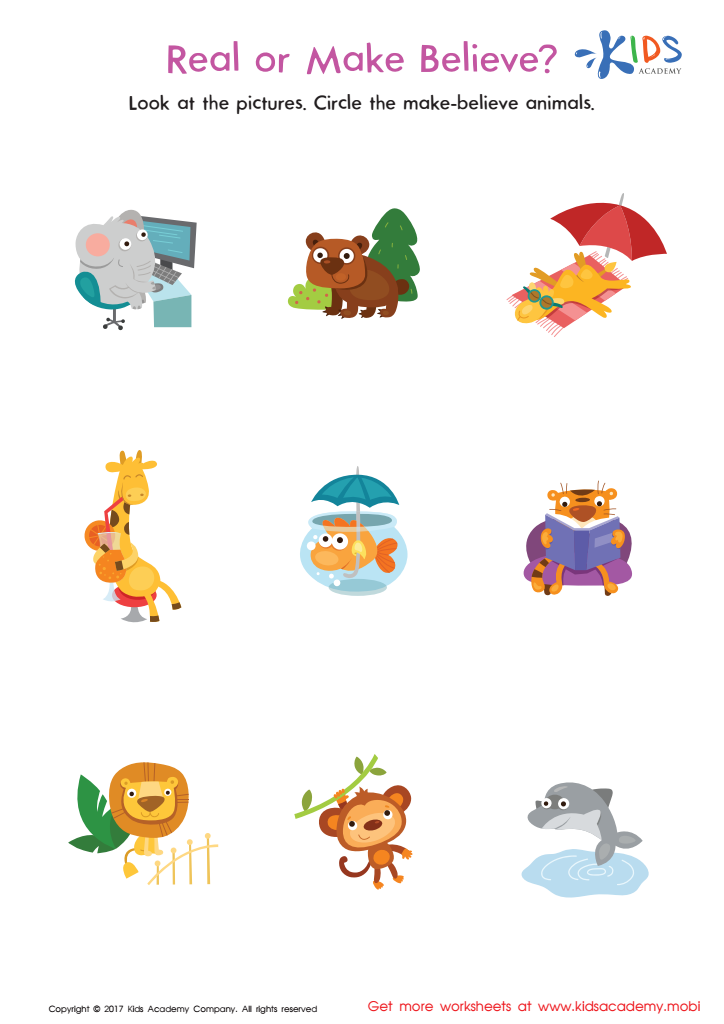

Fact or Make Believe Worksheet
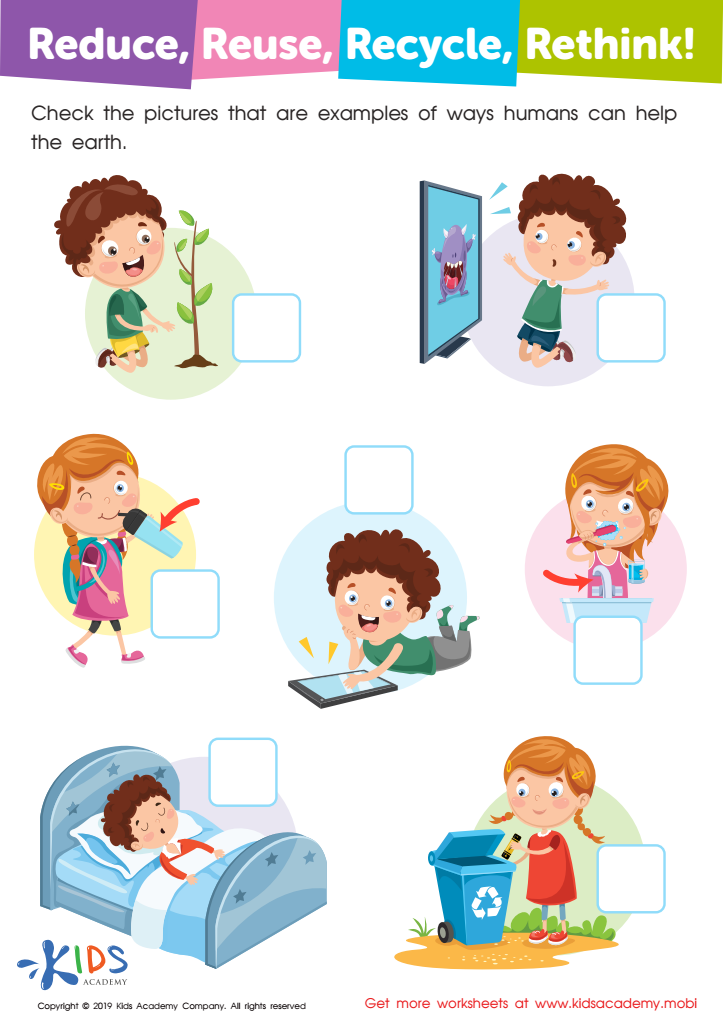

Reduce, Reuse, Recycle, Rethink Worksheet
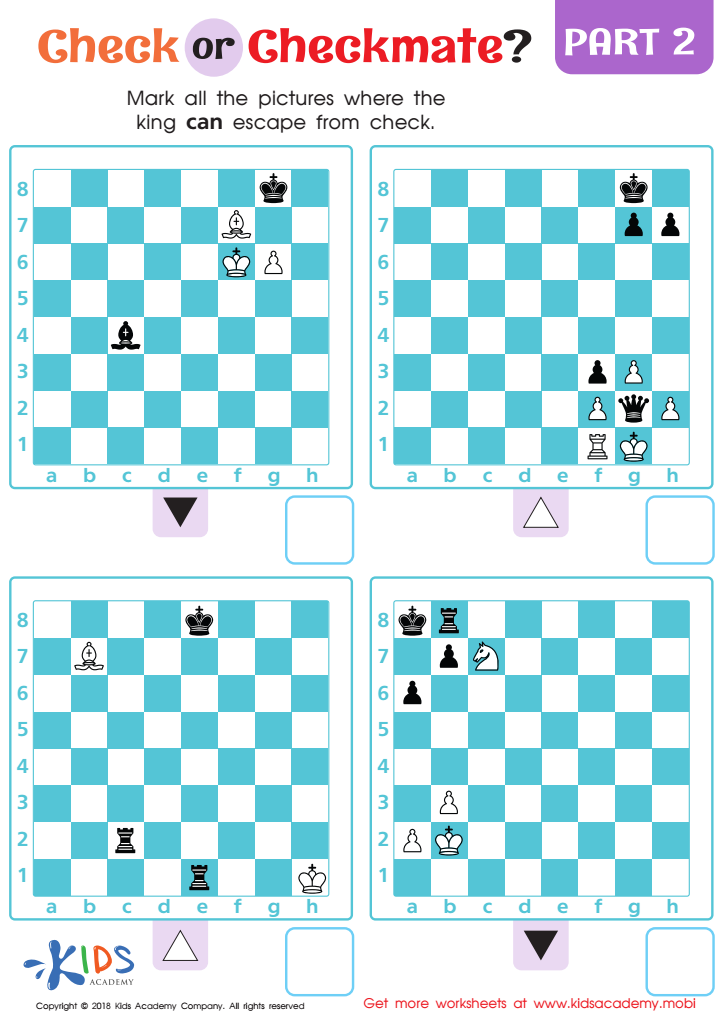

Check or Checkmate: Part 2 Worksheet
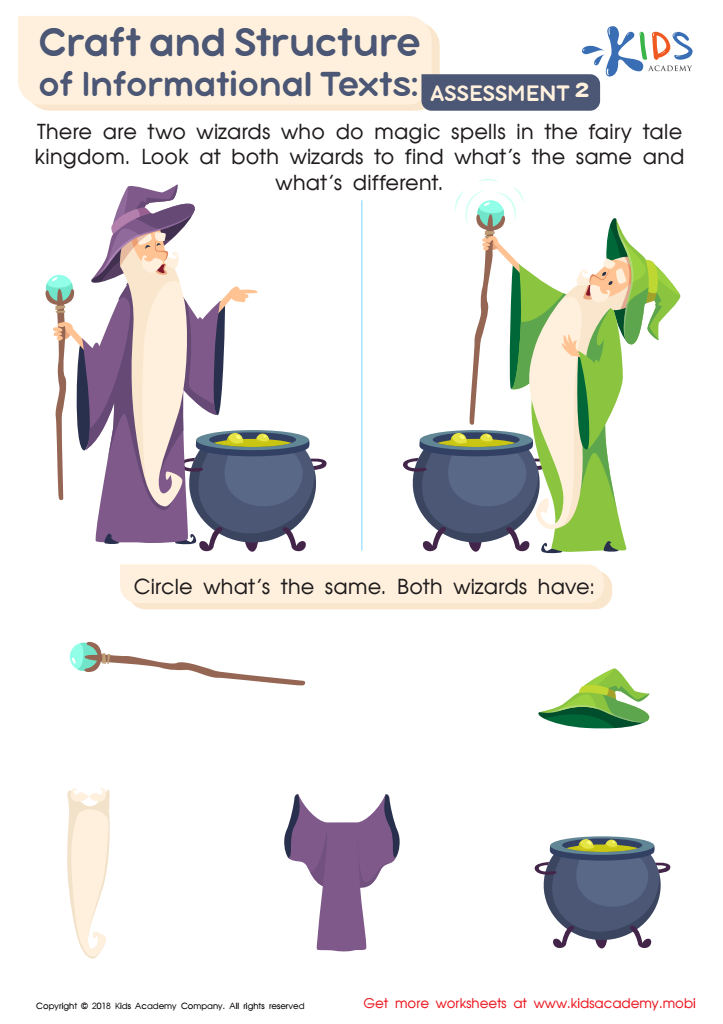

Craft and Structure of Informational Texts: Assessment 2 Worksheet
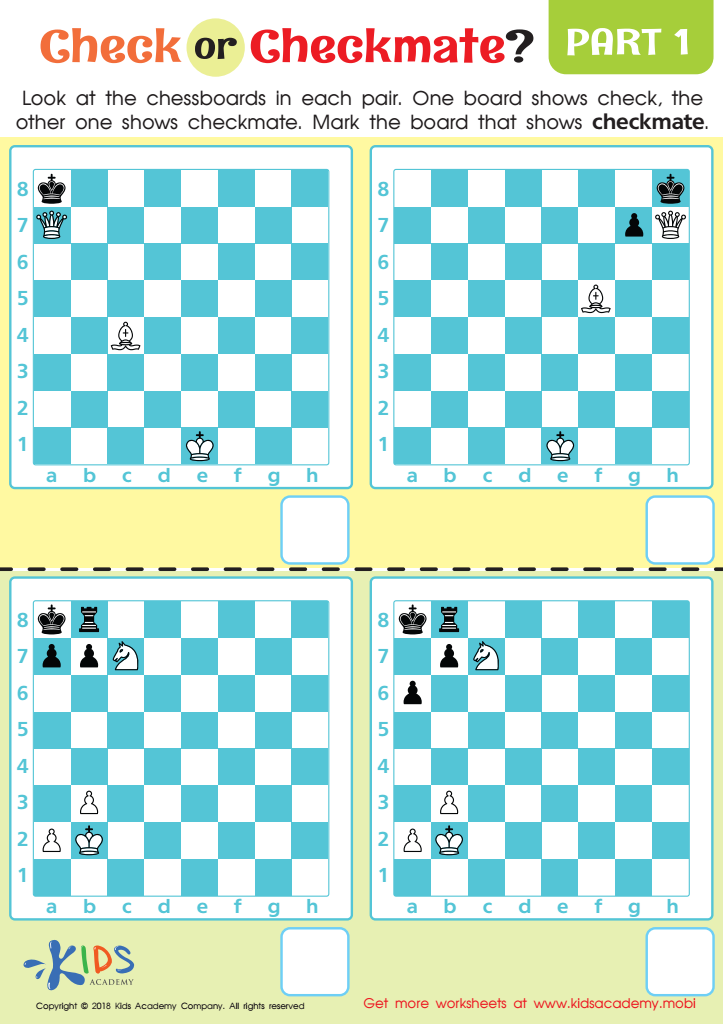

Check or Checkmate: Part 1 Worksheet
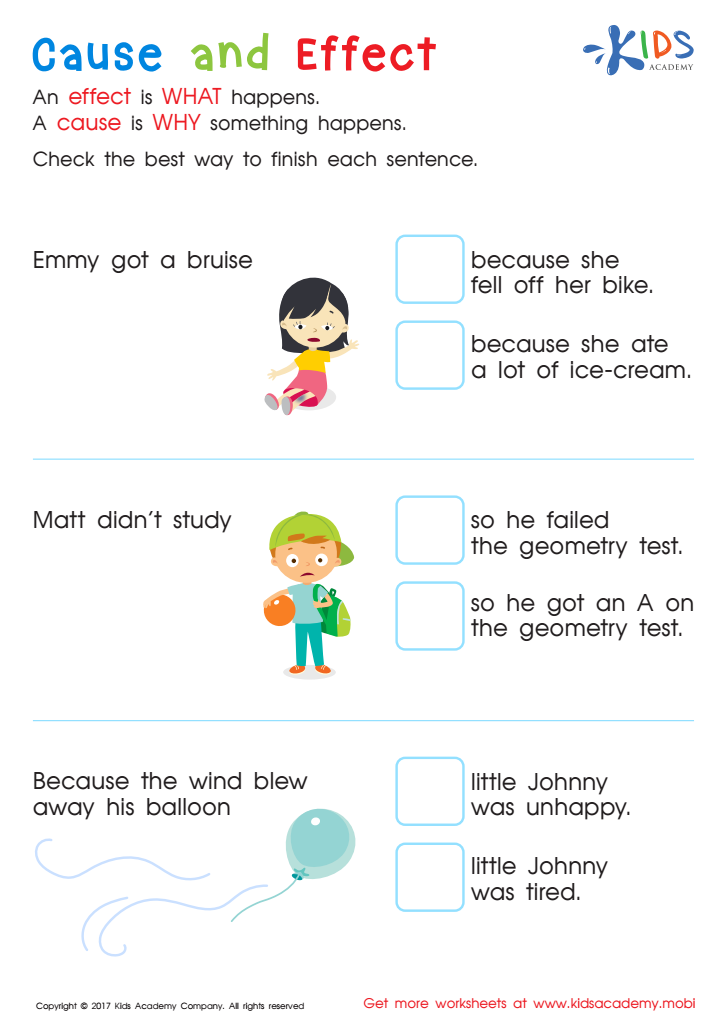

Cause and Effect Worksheet
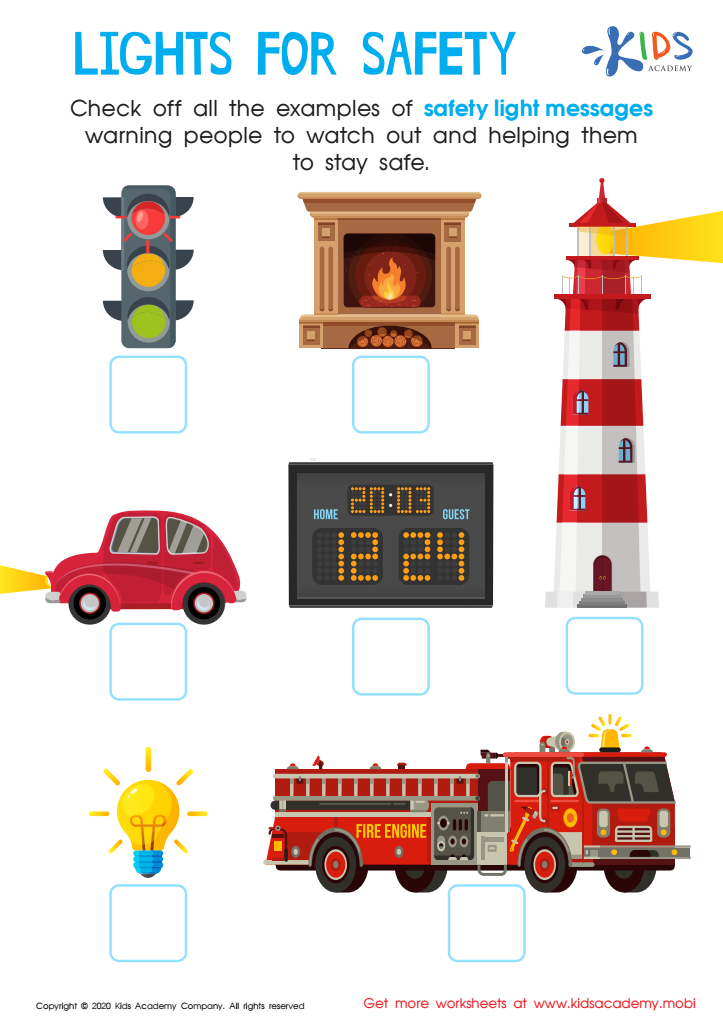

Lights for Safety Worksheet
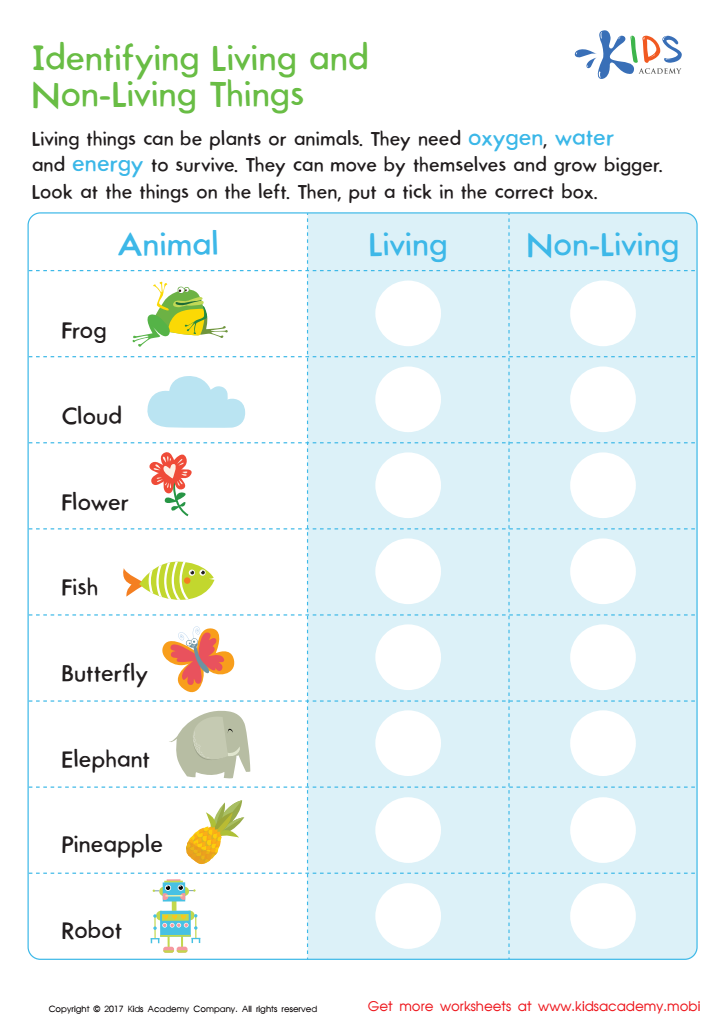

Identifying Living or Non–living Worksheet
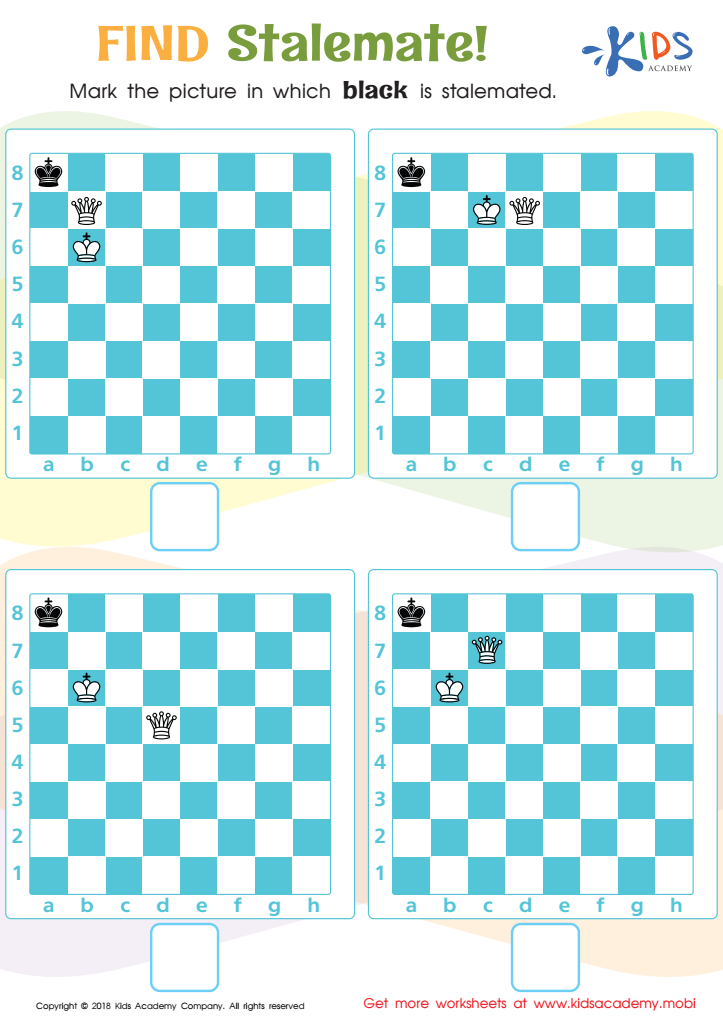

Find Stalemate! Worksheet
Parents and teachers should prioritize the development of critical thinking skills in children aged 4-6 because these formative years are crucial for laying the foundation of independent thinking. Critical thinking equips young minds with the ability to analyze information, solve problems creatively, and make informed decisions. When introduced early, these skills enable children to understand cause and effect, differentiate fact from fiction, and see multiple perspectives on a single issue.
Encouraging critical thinking fosters intellectual curiosity and promotes a love of learning. This not only supports academic success across subjects but also prepares children to navigate complex social interactions. By learning to think critically, children can better understand the consequences of their actions, enhancing their emotional intelligence and empathy.
Furthermore, critical thinking development at this age translates to better handling of everyday challenges, from identifying patterns to assessing risks. In a rapidly changing world filled with diverse opinions and a steady stream of information, these skills are indispensable. Early cultivation of critical thinking ensures that children grow into adaptable, thoughtful, and responsible individuals. This holistic development is invaluable, benefiting not just academic performance but also personal growth and social adaptability, thus setting a solid groundwork for future success.

 Assign to My Students
Assign to My Students



















